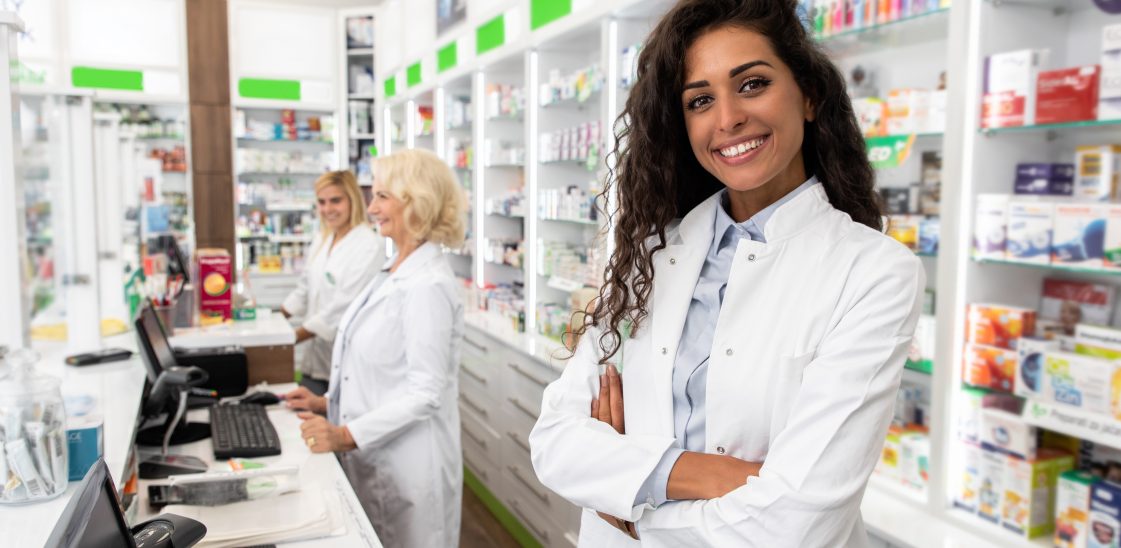
What are pharmacy-only medicines?
The classifications of medications means that there are rules about how you can access different medicines and whose permission you need to do it. One of the most common classifications is ‘pharmacy-only’ – but what does that mean for you?
What is a pharmacy-only medicine?
Put simply, a pharmacy-only medicine is one you can only access from behind the counter at a pharmacy, with the pharmacist’s permission. You can’t pick these medicines off the shelves in the shop, and they’re usually available in a smaller number of locations compared to the less restricted general sales list (GSL) medicines.
To be clear, these aren’t medicines that require a formal prescription or a visit to your GP. When you go to a pharmacy to access a pharmacy-only medicine, it’s likely that the pharmacist will ask you a few questions about your condition and symptoms before letting you take the medicine home with you. This helps them to determine whether or not the medicine is right for you, and if it isn’t, they might recommend alternatives that would suit you better.
In situations where the pharmacist doesn’t believe the medicine is the right choice for your health, they can refuse to give it to you. This is a way of safeguarding you from taking medicines that could be dangerous in the wrong circumstances, as pharmacists have the training to make an informed decision for your health. That’s why the pharmacy-only medicines are stored behind the counter rather than on the shelves in the shop – so that pharmacists can make sure you’re getting the right medicine for you.
With that in mind, you might wonder why general sales list (GSL) medicines aren’t similarly restricted. This is because GSL medicines are typically less dangerous and not as strong as pharmacy-only medicines. There’s a smaller risk of complications or harmful side effects when you take a GSL medicine such as Ultra Chloraseptic’s soothing anaesthetic throat spray, which contains benzocaine to provide short-term relief from sore throat symptoms. However, if you’re ever concerned about whether or not a GSL medicine is the right choice for you, you can still ask the pharmacist for their advice and recommendations[1].
What medicines are pharmacy-only?
In many cases, pharmacy-only medicines are stronger, more impactful versions of GSL medicines you can buy directly off the shelves. For example, you can buy some throat lozenges without consulting a pharmacist, and they may help your sore throat or cough. However, you might need a stronger formula such as Chloralieve’s dual action honey and lemon throat lozenges, which contain a local anaesthetic and two antiseptic compounds to help fight off your infection more effectively.
Other pharmacy-only medicines which are stronger versions of GSL medicines can include:
- Painkillers
- Anti-histamines (anti-allergy medicines)
- Cold and flu treatments
- Travel sickness tablets
Since stronger medicines can have a greater impact on your body, the pharmacist will help you to determine whether the medicine you’ve chosen is the right one for you. These stronger versions of GSL medicines aren’t dangerous if taken correctly – but there is a greater chance of unpleasant side effects if you were to take a larger dose than recommended. Because of this, your pharmacist should run through important information with you such as dosage, how often you can use the medicine and when you should contact your doctor if your symptoms persist.
However, not all pharmacy-only medicines offer widely available GSL alternatives. Emergency contraception is classified as pharmacy-only because it’s important for the pharmacist to establish the facts about the situation before allowing a purchase. This is due to the fact that different types of emergency contraception interact differently with other medications and may be more effective in certain circumstances such as how long it has been since you had unprotected sex.
When you buy a pharmacy-only medicine in store or online, you might think it inconvenient to have to stop and answer questions before you can receive your medicine, but these rules are in place to protect you from potential unpleasant consequences of taking medicines that aren’t right for you[2].
Resources:
[1] https://www.gov.uk/guidance/medicines-reclassify-your-product
[2] https://www.nhs.uk/nhs-services/prescriptions-and-pharmacies/pharmacies/how-your-pharmacy-can-help/
